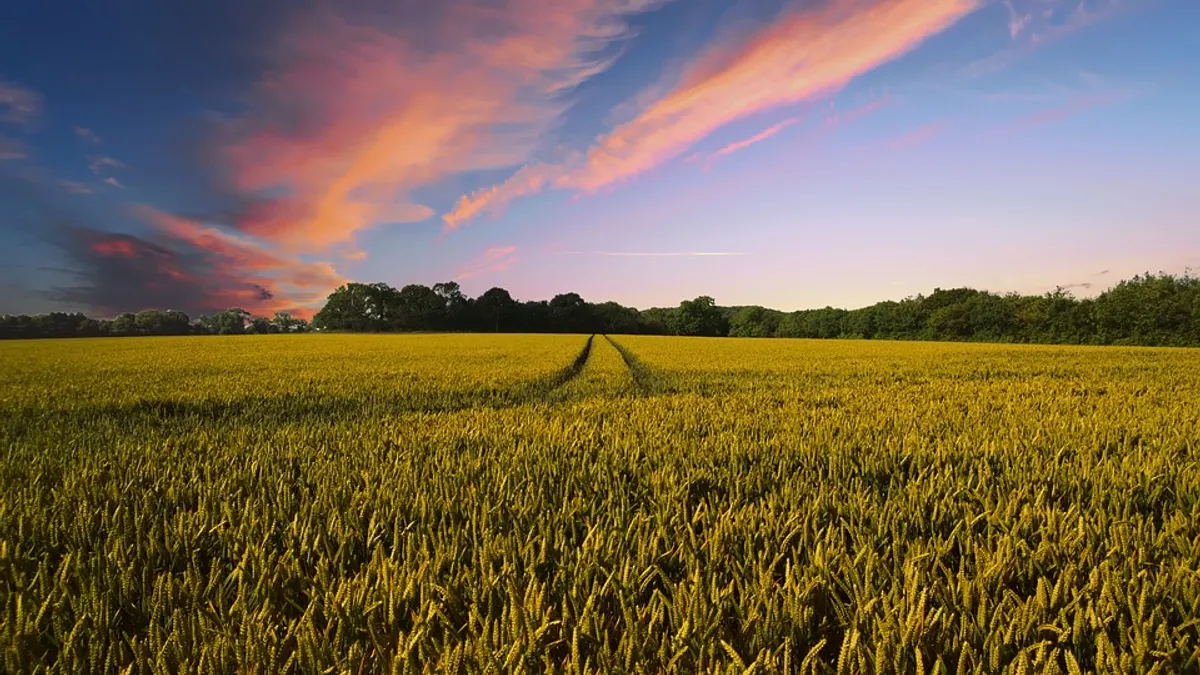Dive Brief:
- IBM announced global expansion of its Watson Decision Platform for Agriculture, which uses predictive technology and data assessment to identify and communicate crop management patterns for farmers.
- The platform is built using data and weather prediction models from The Weather Company, as well as new artificial intelligence (AI) technology from IBM to help assess specific crops and regions. IBM says new crop models include corn, wheat, soy, cotton, sorghum, barley, sugar cane and potato.
- "These days farmers don't just farm food, they also cultivate data — from drones flying over fields to smart irrigation systems, and IoT sensors affixed to combines, seeders, sprayers and other equipment," said Kristen Lauria, general manager of Watson Media and Weather Solutions at IBM, in a statement. The company says the average farm generates approximately 500,000 data points a day.
Dive Insight:
As AI-driven technologies are making a clear impact on metropolitan centers across the globe, they're also becoming integrated into more rural operations that have a ripple effect on the well-being of city populations.
The U.S. Department of Agriculture (USDA) estimates that 40 million people lived in food-insecure households in 2017, with that food insecurity being highest for households located in principal cities of metropolitan areas. While much of this food insecurity is due to food deserts that limit consumer access to grocery stores or supermarkets, inefficiencies on an agricultural level also play a role.
According to the UN Food and Agriculture Organization (FAO), the global population is expected to rise from 7 billion to 9.2 billion by 2050, which will require a 60% increase in food production. Additionally, as the climate drastically changes around the globe, farmers are faced with challenges regarding the most effective ways to plant, spray and harvest crops to complement weather patterns.
IBM's platform works to leverage historical and current data to increase agricultural production, and also has an indirect impact on supply chains and related businesses working to get crop yields to the proper distributors and customers. While a mainly a rural industry, ensuring data-driven technologies are built into farming practices will boost the health and sustainability of all surrounding communities, including those in cities.












